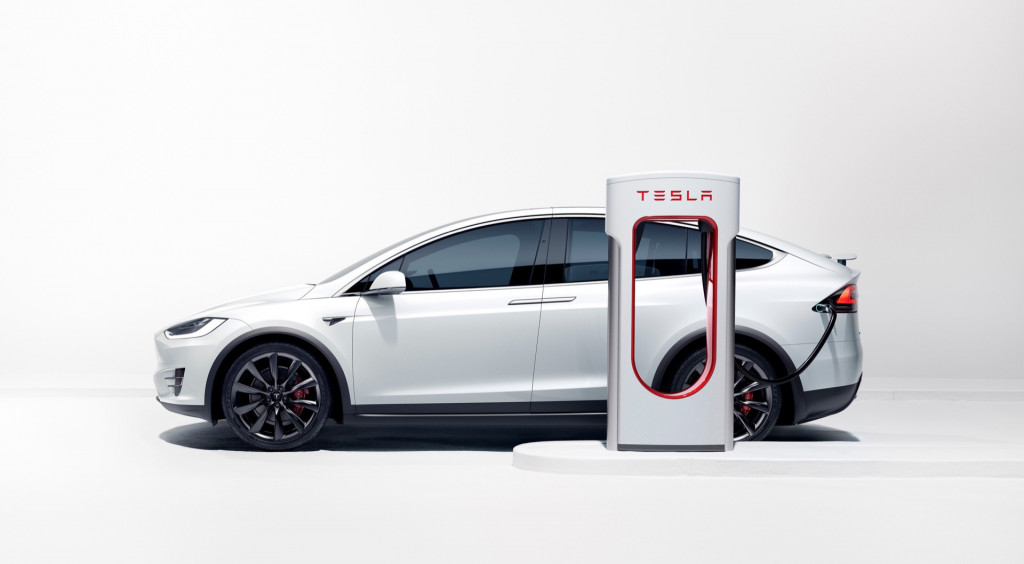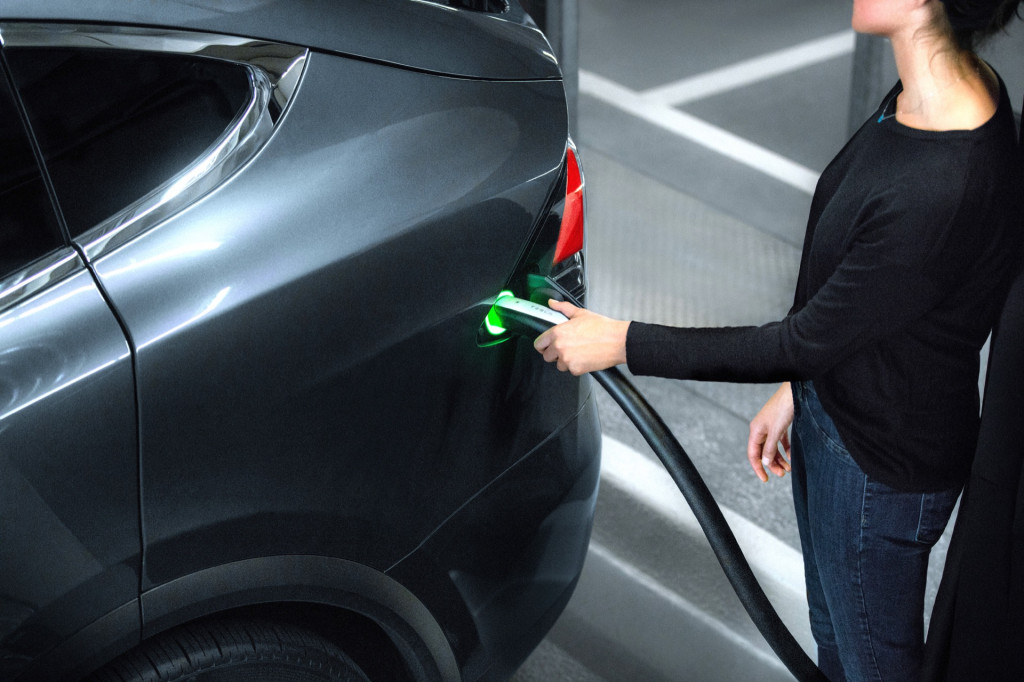Tesla will have to open its Supercharger network to EVs from other brands in order to qualify for federal funding, Reuters reported Friday.
The Department of Transportation this week is expected to detail standards for EV charging infrastructure to qualify for $7.5 billion set aside in the Biden administration's infrastructure law, which aims to create a national network of 500,000 chargers.

Tesla charging (Courtesy of Tesla, Inc.)
The government is expected to require that charging sites getting a federal subsidy have Combined Charging Standard (CCS) connectors. That would force Tesla to augment its proprietary connectors to access that funding. Other standards are expected to focus on cybersecurity and American-made content in charging hardware.
States have control over $5 billion of the federal EV charging network taking form, spread over five years. That led to many states expanding designated Alternative Fuel Corridors, which originated under a different federal program that predates the national charging-network push, but will likely synchronize with it, creating more road trip fast-charging routes. All state plans for the funding got the green light by the end of September 2022.

Tesla charging (Courtesy of Tesla, Inc.)
A recent study suggested that it will take 1,104 new/additional EV fast-charging stations to meet the federal government's targeted 50-mile interval for each charging site on the proposed national network. Whether Tesla unlocks its Supercharger stations to become part of that number remains to be seen.
Tesla CEO Elon Musk said back in July 2021 that Tesla would open its Supercharger network to non-Tesla EVs, but that hasn't happened in the U.S. and is only the case for a few smaller markets. And in a letter to the Federal Highway Administration last year, Tesla argued its Supercharger stations should qualify for federal funding if they were co-located with CCS stations, which would allow the automaker to avoid installing CCS connectors on its own chargers.












